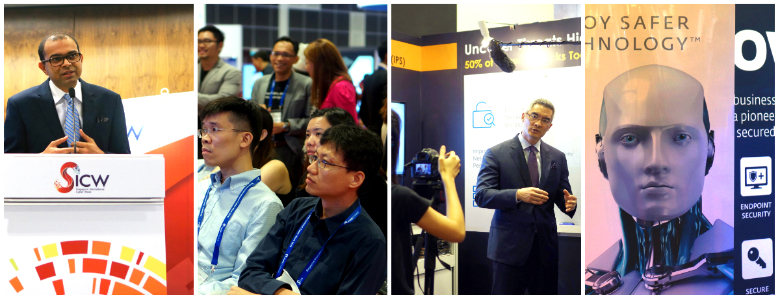IoT Security: The next battleground

With Singapore’s push to become a Smart Nation, the Internet will soon permeate every corner of our everyday environments, said Dr Janil Puthucheary, Minister of State, Ministry of Communications and Information.
But therein also lies the problem, he added, as there may be challenges to securing the Internet of Things (IoT) space in particular — considering that there are no international standards or protocols for IoT yet.
Nevertheless, the Singapore government is working on addressing it — or at least, responding quickly to problems if and when they arise, Dr Janil said during his opening speech at the Smart Nation IoT Security Conference..
“Singapore may or may not be the first to solve this issue, but we will be an early adopter. Our engineering and policy expertise in the government, and our willingness to respond quickly and boldly to the needs of the day, will be key to helping us create this safe and secure IoT space in Singapore,” he said.
The Smart Nation IoT Security Conference was organised by the Government Technology Agency (GovTech) and the Cyber Security Agency of Singapore (CSA), and supported by the Agency for Science, Technology and Research’s (A*STAR) Institute for Infocomm Research, and the Smart Nation Programme Office (SNPO).
Esteemed speakers from industry, government and academia gathered to exchange international best practices and their thoughts and experiences on IoT security.
IoT security in the limelight
The Conference was one of five inaugural events featured at the recent Singapore International Cyber Week (SICW), held from 10-12 October 2016.
The SCIW was officially launched by Prime Minister Lee Hsien Loong. In his opening speech, Mr Lee cautioned that while information and communications technology (ICT) brings many new opportunities, it also opens up new vulnerabilities as globally, cyber threats and attacks are becoming more frequent and sophisticated.
Highlighting the great importance of cybersecurity at the national level, PM Lee also noted that how government networks in Singapore are constantly being targeted; and what’s worse, there are even fake websites out there masquerading as government websites, attempting to steal sensitive information.
On a similar note, speakers at the Smart Nation IoT Security Conference brought up succinct insights about current trends.
As Singapore aspires to connect millions of smart objects to the internet within the next five years, ranging from the humble bicycle, to even traffic lights and lamp posts, conferences such as this one will become increasingly relevant as they set forth discussions on security challenges in the area of IoT security, said Ms Jacqueline Poh, CEO of GovTech.
Indeed, the collection and analysis of data gained from the various sensors could provide very valuable insights and, ultimately, help to shape policies to better the lives of Singapore citizens, Ms Poh explained.
But for this data analytics approach to work, it is crucial that the networks involved are able to ‘defend’ themselves against malicious cyber attacks.
“For many of us, these are exciting times,” she said. “Therefore, it is important that all of us here at this conference get together to discuss and share best practices that could lead to the co-creation of solutions.”
Technology and the Human Condition
Unseen but waiting: Lurking just beyond our computer screens are malevolent actors that can, and will, attempt to wreak havoc.
They cannot be underestimated either, being capable of stealing intellectual property; harassing and bullying; and disrupting, destroying, and paralysing systems, according to Professor Raj Thampuran, Managing Director of A*STAR, in his keynote speech titled ‘IoT Security: an essential part of Smart Nation’.
“The security posture of a system, and by extension, organisations—and in a large-scale deployment scenario, even societies—does not seem to be one where there can be a permanent solution,” he said. “Adversaries will always find new tools and techniques to stress and attack networks.”
He went on to suggest that beyond technological problems, there is also the problem of human fallibility arising from human judgment. In the face of this reality, systems must have in-built dynamism to be able to adapt to continuous changes.
“IoT and everything else is a manifestation of a society that, I feel, will witness a multitude of significant changes in the way we relate to and accept technology that influences all facets of our lives,” he remarked.
“But the issues are not solely technological, because it involves the human condition; in terms of ethics, societal dynamics, organisational behaviour, politics and decision sciences.”
Professor Thampuran encouraged more and greater opportunities for the participation and collaboration of those from many different disciplines and communities, as the world evolves to embrace IoT.
Echoing his sentiments was Dr Lua Rui Ping, Consultant at GovTech, during another presentation.
“The Smart Nation idea is a very grand one. But the important thing is that we want to leverage on networks, data and ICT to improve our lives and more importantly, create economic opportunities,” he said.
Dr Lua shared some of GovTech’s latest projects and initiatives with the conference attendees, adding that the premise of the sharing economy is to bring all these data together to unlock different services for citizens.
“We also want to use data and IoT as avenues for us to nurture and grow our community,” he said.
“In this way, we can be tighter and more resilient as a society.”
https://www.tech.gov.sg/media/technews/iot-security-the-next-battleground
